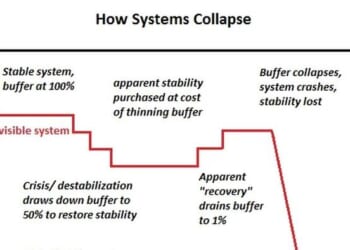
Overall, the country is not headed in the right direction when it comes to reading test scores. In 2024, for example, the average reading score for American fourth graders was 2 points lower than in 2022, and 5 points lower than in 2019.
Bucking this trend are Alabama, Mississippi, Tennessee, and Louisiana, all of which have recently posted impressive improvements in their fourth-grade reading test scores. Nicknamed “the Southern Surge,” the literacy gains of these four relatively poor red states is an important sign of hope. First, and most importantly, meaningful improvements in literacy will hopefully make a difference in the lives of students. Additionally, the fact that poorer states in the South are making progress—while wealthier coastal states are failing to do so—indicates education policy changes really can make a difference. Consider the relative rankings of states regarding the reading proficiency of economically disadvantaged fourth graders. Wealthy, progressive Connecticut? It ranks only 22nd. Poorer, more conservative Mississippi? It comes third.
Applause over the achievements of these Southern states nevertheless has quickly devolved into controversy. The message picked up by social media was that the Southern Surge was mostly due to the adoption of specific silver bullets, and all that is needed to improve literacy rates nationwide is a straightforward change of policy. Phonics was a popular explanation. Rahm Emanuel, the former Democratic mayor of Chicago, ascribed the success of Mississippi in part to “discarding ‘whole language’” literacy methods,” an educational technique that famously prioritizes student-driven independent reading over classroom phonics instruction. Similarly, pundit Matthew Yglesias suggested that literacy in U.S. schools would benefit from a return to the type of accountability measures implemented under President George W. Bush but discarded by the Obama administration. Then came the pushback. The writer Freddie deBoer, for example, argued that it was a mistake to view “phonics [as] some sort of reading panacea,” stating also that “there are no miracles in education.”
Who is right? Are there silver bullets in education? What does the Southern Surge teach us? A careful look at what is happening in the South doesn’t show us that education reform is easy. There are (sadly) no silver bullets. However, with significant effort over many years, it is indeed possible.
As education expert Karen Vaites pointed out in an essay co-authored with journalist Kelsey Piper, the Southern Surge is actually a result of “multilayered reforms.” Several of these reforms have gotten significant press attention, including (yes!) phonics, retention policies (i.e., holding back third graders who don’t meet reading standards), teacher training, and frequent student assessment.
But one aspect of the reforms, arguably one of the most important, has not gotten as much airtime—possibly because it is the hardest to explain succinctly. That is the adoption of “knowledge-building curricula” by many of the relevant school districts, particularly those in Tennessee and Louisiana.
As I have written about previously for The Dispatch, knowledge-building curricula emphasize “the crucial role of background knowledge in comprehending what you read.” Here’s an example: My two older sons spend a lot of time talking to me about the intricacies of the video game Minecraft. I don’t play any video games, including Minecraft, and I have zero background knowledge on the topic. I find it basically impossible to understand what they are saying about how the game works—despite it being explained to me repeatedly, and at volume. That’s similar to how a seventh grader from an impoverished household might feel if she has no background knowledge of Victorian England, yet is handed A Christmas Carol and told to understand it. What is a charwoman? What is a milliner’s shop? These and many other similar questions would baffle a reader who lacks the needed context to follow the story’s plot.
To combat this, some areas in the South are moving to dramatically increase their students’ background knowledge in history, science, and so forth. Running contrary to the trend of “ask ChatGPT” or “just Google it,” these schools are trying to increase the amount of information in students’ heads. Louisiana—for example—has created its own social studies curriculum that emphasizes knowledge acquisition by students.
In an interview with the History Matters podcast, Sean Dimond, a former middle school teacher who is now senior social studies editor at the Core Knowledge Foundation, explained the new Louisiana program. Previously, he said, the curriculum lacked coherence and depth: “In sixth grade, we were basically expected to cover all—and I’m not really exaggerating here—of human history.” Per Dimond, this included snippets of information from the Stone Age through the Renaissance. Now, public school elementary students in Louisiana may be asked to do a deep dive in a unit on the Civil War that emphasizes learning critical background facts about the time period. Students end the unit with a debate over Abraham Lincoln. This kind of slow, comprehensive educational experience is key, according to Dimond, because when it comes to literacy, “content is king.” In other words, a fourth grader is not going to be able to comprehend a text about the antebellum South without some amount of background knowledge regarding that time period.
To put it another way, creating literate children is a yearslong process. As phonics advocates rightly point out, children must first understand how to decode words through phonics instruction. But phonics is only the beginning. To progress further, children—especially children from low-income households who aren’t exposed to significant background knowledge at home—need lots and lots of factual knowledge about the world. To get there, it helps to have motivated teachers who appropriately teach phonics in the early grades, and then switch over to building knowledge in the later ones. It helps to motivate students—including through retention policies and curricula that are designed to be interesting. It also helps to have frequent assessments so struggling students can be identified and helped.
As education expert Natalie Wexler points out, many poor performing schools that are trying to raise test scores quickly don’t invest time and energy, but try to bypass the problem by teaching general comprehension and test-taking skills. Instead of delving deep and building knowledge, these schools prioritize “brief texts or excerpts followed by reading comprehension questions that focus on the skills that appear to be measured by the tests.” Wexler argues that this is counterproductive, and kids who “attend schools that are under pressure to raise reading scores, [likely] get a steady diet of abstract, and therefore largely useless, comprehension skills.” Again, teaching general reading comprehension skills is not useful if kids don’t have enough background knowledge to actually understand what they are reading. Even if I know to look for the main idea in a passage, that study tip does me no good if the passage is still inscrutable when I read it. Yet many schools focus on this kind of attempted “skill development,” without a recognition that comprehension, reading, and writing skills follow mastering content, and not the other way around.
In short, literacy reform is difficult, and something that can only be accomplished over years of dedicated effort. As Vaites and Piper explain, these reform efforts were “underway for 20+ years in Mississippi, 13 years in Louisiana, six years in Tennessee, and six years in Alabama.” The Southern Surge shows us that change is possible—but lasting and widespread gains are achieved only with a significant and concerted action by curriculum designers, politicians, principals, teachers, and communities.
In the age of AI, some might wonder whether reading remains relevant. Policymakers and parents should be assured that it is. Those who can’t do it run the risk of being cheated in written contracts, finding our social services bureaucracies almost impossible to navigate, and being shut out of many decent jobs with benefits. It remains one of the single most important obstacles to escaping poverty. Our prisons and jails are filled with people who are functionally illiterate, with one organization finding “three out of five people in U.S. prisons can’t read and 85 percent of juvenile offenders have trouble reading.” It remains to be seen if a widespread effort to tackle illiteracy in the United States will succeed. But these Southern states show that with painstaking effort over many years, it can be done.

















